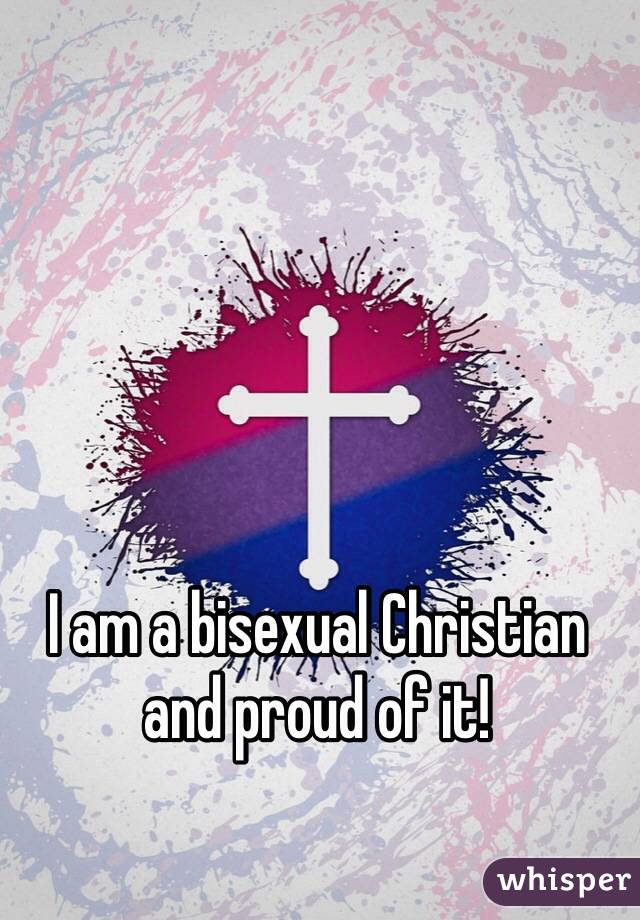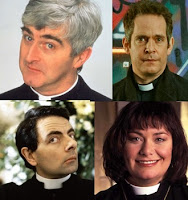I am almost caught up on my journey so far (see previous blog posts: history of my faith
part one and
two,
history of my calling, and
my first steps exploring it).
Between the two meetings with my rector, what I did most was think. Getting the big kick in response to contemplating the
Camino revved the engines, but talking to someone 'on the inside', someone I trusted knew what they were doing and would help me do something about it, put the process into gear. I spent the month or so between meetings getting used to the idea that my calling was going to be addressed starting now, age 23, rather than in the future like I had always thought. The initial excitement didn't die down but it became more contained and focused, and I didn't realise it at the time, but I sought out tools and strategies to get started, even though I didn't really know consciously 'how to get started'.
When I was deciding to be a stage manager, the one thing everyone said was a stage manager is a 'people person'. I was not a people person. I knew that but it didn't put me off. I was determined that I was suited to everything else about stage management, why give up without trying first? And you know what, in the 8 years since then, I have put a lot of energy into becoming better at gauging my relationships with people, things like cutting down on how much I explicitly complain, and putting others' needs first, and doing so without compromising on who I am. I'm still not a natural people person, but I have trained my thinking into better patterns to become more like a people person. Which I am really glad about.

One of the many things people often say about priests is it is a 'life of prayer'. I have historically been terrible at prayer. It has previously been very low down on my list. But again, I am not going to let that put me off. I'll write another post about why I think I'm suited to being ordained (edit: I did, it's
here), but basically I think it's generally a good idea; so if I can change the way I relate to people, surely with the same effort and perseverance I can re-orientate my habits and thinking to be more prayerful. Just the mere fact that I want to is an important part of that.
I have owned a hard copy of '
Daily Prayer' the official C of E book for maybe a year, maybe two. I've off and on managed to do morning prayer here and there, maybe compline, but never with any consistency. So in the last month I have got three things.
One: the C of E Daily Prayer app. YES, the good ol' Church of England
actually has apps, being all hip and 21st century. You can get morning, evening and night prayer, with all the right readings and collects there on the one screen rather than sitting with two or three books, flipping between bookmarks. My schedule keeps changing due to my job, but when I was getting up and going to work for 9.30am in rehearsals, I was able to read morning prayer everyday, silently on the train. And if I get to bed and realise I haven't done any structured prayer that day, I can reach for my phone and quickly whisper night prayer.
Two: another app! The C of E Reflections for Daily Prayer app. This one's great, because even if you don't do morning prayer, it'll give the reading and a few short paragraphs of reflection, from a variety of wise contributors. I read it every day, which also has the bonus of meaning that I get an extract of scripture every day.
 |
| So small! |
Three: an unofficial book of prayers,
The Little Book of Prayers. I picked this up when browsing in Waterstones. It's a collection of a variety of prayers from all walks of life and religions and philosophies. I love it for two reasons; one, it's tiny, so it fits in my handbag easily, and two, it has an index for when you want to pray about or for something specific, like gratitude, strength, guidance, grief.
So this means that if I don't manage to do official prayer - like at the moment I work 5.30pm-10pm on performances, so the morning is pretty much gone when I get up, and evening prayer is focused on a quiet end to the day rather than what I'm doing which is starting work - I can pull this little dude out of my handbag and read a short prayer a few times.
I've also started reading around. Every resource for discernment and ministry mentions reading books, and to be honest, it has been daunting. I did a practical degree course without any assigned reading, or textbooks, or any need to reference literature in essays or whatever. And when I see the lists and lists of recommended reading, I am at a loss as to where to start.
 |
| I am an unashamed Disney fan... |
But I have managed to have a stab at it. Oddly, one of the books I first read in this process was
Religion for Atheists, which was great to get a very different perspective on religion. Then I read, and mean to read again,
Hearing the Call: Stories of Young Vocation, which was a very reassuring experience, hearing from someone who has dealt with young people in my situation and finding that I'm saying very similar things to them. I'm currently reading
What Anglicans Believe, ie. what am I supposed to be signing up for (I also have a hard copy somewhere of a book, I can't remember the name, that sets out how the Church of England operates practically, which I should look over again). And I'm lucky that it's near the end of the year, so I've got myself one of those 'read the bible in a year' books, to start on January 1st. We'll see how that goes. Plus, I've always loved gospel stories about Peter, so the next book I'll read is a recommendation off my rector,
Jesus and Peter: Growing in Friendship with God.
It was only in my second meeting with the rector when I said I had done all this that I realised I was actually doing something. I had been under the impression that I wasn't doing anything, that things had been on pause since my last meeting, and I was just waiting for the next to be told what to do. But my rector keeps talking about "keeping up the momentum" and that doesn't mean speed. It means things are progressing, slowly, so that I have time to really understand what's happening.
I've been worried that I haven't been doing enough, that my work and social lives aren't giving me enough time to dedicate to exploring my calling. But the momentum is there. This sense of moving towards a greater part of my life is with me all the time. And it doesn't come from me. All I can do is respond, and that's not always a proactive and obvious thing. Not at this stage. Not yet.
Anyway, so I'll mention three things from the second meeting with the rector.
Who am I? I mentioned
 |
| More Disney, yes! |
this in an earlier post, but essentially she started teasing out answers to that question, because I am going to go up to the Church and say "God is calling me, here I am" and the response from the Church is going to come down to "So who are you then?" And part of the discernment process is self-awareness, and learning to articulate an answer to that question that is comprehensible, and comprehensive. The church need to get to know you, and I realised I'm not very good at that. Not many people are without practice. The person sitting behind my eyes feels like it has a good sense of who I am, I
feel like I know myself. But try and say it out loud, and it's really difficult! To put it into words that someone who is not inside your head can understand and get a true impression of who you are? That's a surprisingly tough challenge.
Another thing was an unexpected insight into myself. I have cried in that kind and patient woman's office the majority of times I have been there, and that day was no exception. In just the same way I was worried in the past when people said I wasn't a people person, I am terrified that someone is going to turn around and tell me "this is a bad idea. You're not suited to be a priest. You're wrong if you think you should be. You'd be terrible at it. I don't want people like you as priests." No one has come even close to saying anything like that. Everyone has been quite supportive. I suppose the fear hasn't gone away because no one has yet to hear me say "I feel a calling to ministry, possibly to be ordained" and shouted "oh yeah! I can see that. I think that's a great idea. You'd suit that."
I don't want my rector to do that. I'd be surprised and find it unhelpful if she was definitive and gave me black and white answers. It's like a therapist, their job is to help you understand what's going on in your head and in your life and then work out for yourself with coaxing and suggestions what to do about it. But if someone did, if someone genuinely said "Go for it", that would be... just awesome.
The third thing was very exciting, because it's the first time there's been talk of doing something official, and even though I am working to get over my impatience, it is gratifying to take a small step that is explicit. I took the decision back in September to take December off. All people in theatre do a Christmas show, but it takes up your life more than a usual show, and would mean I just wouldn't get to church, none of the Advent services, carol service, midnight mass, nothing. So I didn't want to do one, I chose church instead. I told my rector, and she brightened up as I asked if I could be useful to the church with all this free time, to help out, and in light of our conversations, get a bit more experience of church life beyond the Sunday services. She was all in favour, and said it could be a sort of 'mini-placement', and by gum, that made me want to fist pump.
A placement is a classic part of the discernment process. There is what appears to be a lot of resources out there for people in my position, but they're actually all very vague. However, 'placement' is one of the few specifics that are mentioned, so YIPPEE!

Finally (sorry for waffling a rather long post) a few days after this conversation, I saw my best friend and it was one of the things we talked about. When I told her about the whole more prayerful thing, she left the room and came back with a
rosary. Bit Catholic, I thought, I'm not saying any
Hail Marys thank you! But she explained it was an Anglican rosary, shorter and with different prayers (see pic).
She's lent it to me, and it's a great addition to my choice of prayer each day. I suspect I might be getting one for Christmas...
So there we are. That's where I am now. I'm seeing the rector again in a few weeks, after I've finished the show I'm working on at the moment, going into my church-centred December. My homework was to think about how the
Criteria for Selection make me feel, so I'm working on that. (edit: I spoke about it in
these videos and wrote about it
here.)
God bless.
 But my hope is that I get it right enough to outweigh when I get it wrong. I hope I can live a life that is, yes, religious, but in a way that makes people rethink their assumption that being religious is necessarily a negative thing. I find so much that is good, and useful, and wonderful, in religion, and somehow, I hope I can show that to others.
But my hope is that I get it right enough to outweigh when I get it wrong. I hope I can live a life that is, yes, religious, but in a way that makes people rethink their assumption that being religious is necessarily a negative thing. I find so much that is good, and useful, and wonderful, in religion, and somehow, I hope I can show that to others.














